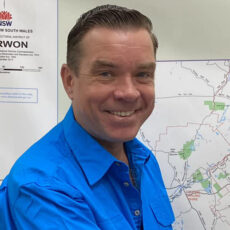How often do you pause and ponder and reflect on who we are as humans?
One of the striking facets of this current pandemic is the number of articles, shows, posts, across all forms of media, that have spent time reflecting on who we are as humans.
The change to our daily routines, the change to our global structures, the way in which even basic activities like walks, holidays and work have changed – all of this has prompted a remarkable level of introspection and self-reflection, all focussed on who we are as humans.
Perhaps you have spent some of this changed time doing the same!
Two articles have stood out for me recently.
First, an article in a major national newspaper considered the importance of work for who we are as humans.
In a Western culture that has increasingly emphasised leisure and hobbies, this author argued that the pandemic had revealed that work is probably a more important part of who we are as humans than many had previously thought.
Second, an online article I read this morning stated that research showed we are not as altruistic as we all assume.
Dealing with the COVID-19 tracking app proposed by the Federal Government, and the nature of voluntary uptake, this article argued that we are by nature self-seeking and we expect others to do the right thing before we do (and we expect that ‘free-riders’ get punished!).
Both these articles got me thinking about who we are as humans – what we are like, what we do, why we do stuff.
Like all of us, I approach this from a particular perspective (we all have to acknowledge that none of us are unbiased!)
But it struck me that these two articles on human nature, in the midst of the pandemic we are all experiencing, actually touched, respectively, on two key ideas from the Bible.
The first is very clear: we all have value, and purpose, because we are made in the image of God.
This basic template explains so much about human society and human interaction. It explains our innate value and the way in which we interact in a community sense – and that has been so obvious at this time, and during the drought.
It explains the way in which we both value work (work is part of our construction as humans) and seek rest. It explains the way in which we try to deal wisely with the world around us.
The second is just as clear, but perhaps not as palatable: we are all fundamentally flawed people living in a broken world.
We are not as altruistic as we would like to think we are!
The brokenness is not so hard to see, is it? We are experiencing that around us, in every part of life, at this very moment.
But we also experience it daily, as our bones creak, as our dreams fail, as we experience the damage of relationship breakdown, loneliness and need.
As I have navigated this pandemic, this reflection on human nature has struck me time and time again – on the one hand, we seem to have something retained of the image of God in all of us; but, on the other hand, we are so broken as people, living in a world that seems so dysfunctional.
How do you make sense of that?
Let me make a couple of suggestions.
I think that the two ideas I have mentioned from the Bible make sense of this world we live in – we are people made in the image of God but broken (‘fallen’, if you want to use the religious language!) makes sense of so much I see and experience in human relationship and community.
And the best place to see a way through this experience is not by trying to make sense of it myself but to deal with the one bloke who did – Jesus. At this time, when we have so much time on our hands to reflect on who we are, why don’t you take time to deal with Jesus, and see how he makes sense of this seeming conundrum of human existence?
To order photos from this page click here







